The following excerpts are a handful of the 62 portraits from the final exhibit. To experience the full body of work, view the list of upcoming displays or contact Kayla for other opportunities.
"I was going to bring a sleeping bag, but it didn't fit so I didn't [pack] it."
-Yumi, 11
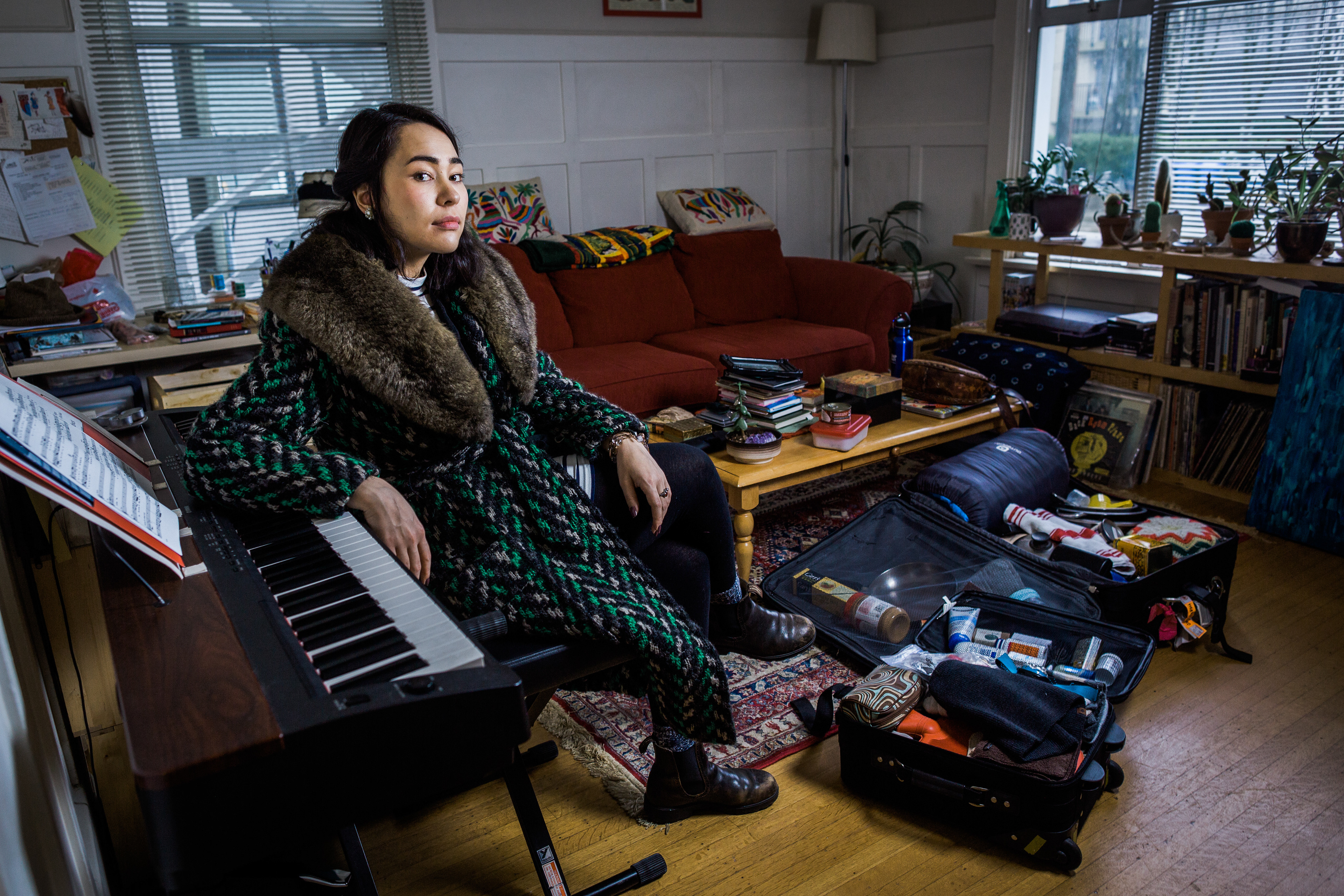
"There’s this false idea that this happened in the past and that we’ve moved on."
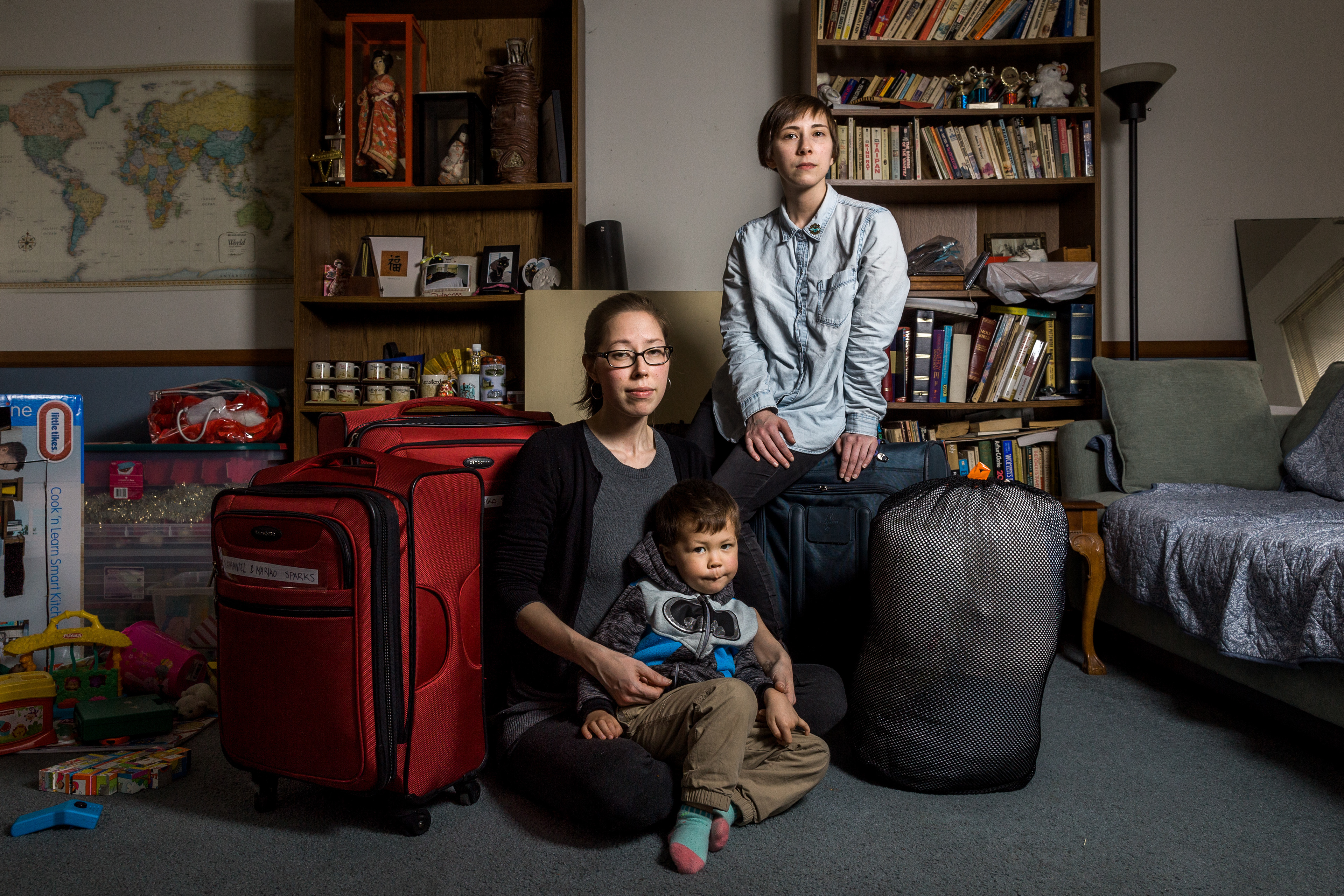
“As I started having to go through and do the physical packing, it was something very different, especially since I am five, four months pregnant now. Having to think about not only packing for myself, my husband and my son who’s three years old, but also for this baby that I haven’t even met yet.”
!["It's kind of shocking because that’s literally all your earthly possessions that you’re allowed to bring with you over the next three to four years. [...] It kind of hits home when you read that letter."](https://cdn.myportfolio.com/5ca9efb7-9c4a-4d50-b898-deccfb7d0e1b/629c5f12-5053-4efe-8843-91dfccacc269_rw_1920.jpg?h=cd271d3a0adc4592f03578b314534212)
"It's kind of shocking because that’s literally all your earthly possessions that you’re allowed to bring with you over the next three to four years. [...] It kind of hits home when you read that letter."
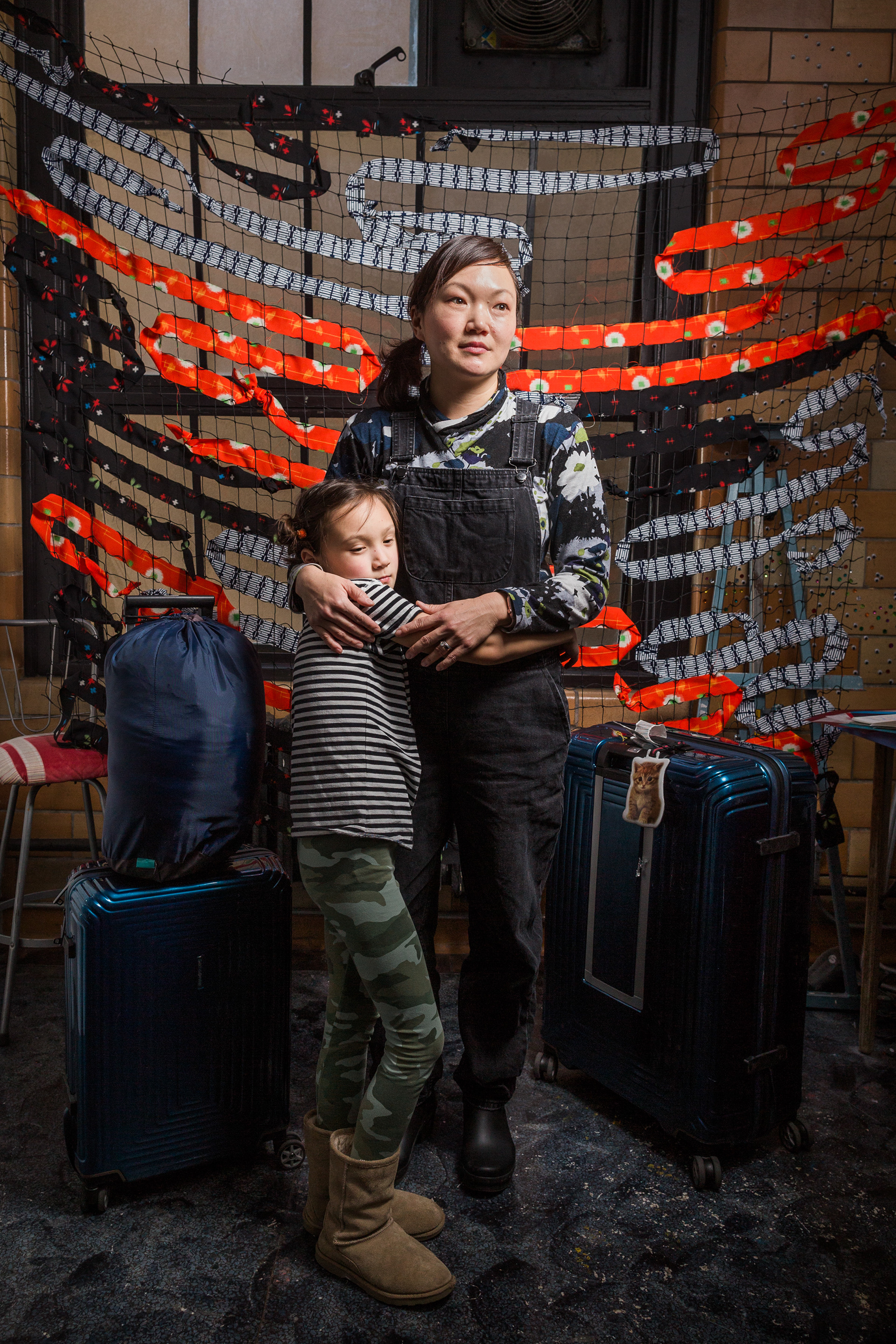
"I packed her things while she was at school. I wasn't sure about her actually having to do it. I think that, she knows about internment, but the more she finds out about it, it gets kind of emotional for her."
!["Now everything that's Japanese is the coolest and so I think for me and also my brother, [we are] embracing that Japanese culture more than my dad was probably able to."](https://cdn.myportfolio.com/5ca9efb7-9c4a-4d50-b898-deccfb7d0e1b/f4c6f81e-6d20-4a58-85f1-0b1d903f7d88_rw_3840.jpg?h=fea6d1c67de40ec59355a534587725b3)
"Now everything that's Japanese is the coolest and so I think for me and also my brother, [we are] embracing that Japanese culture more than my dad was probably able to."
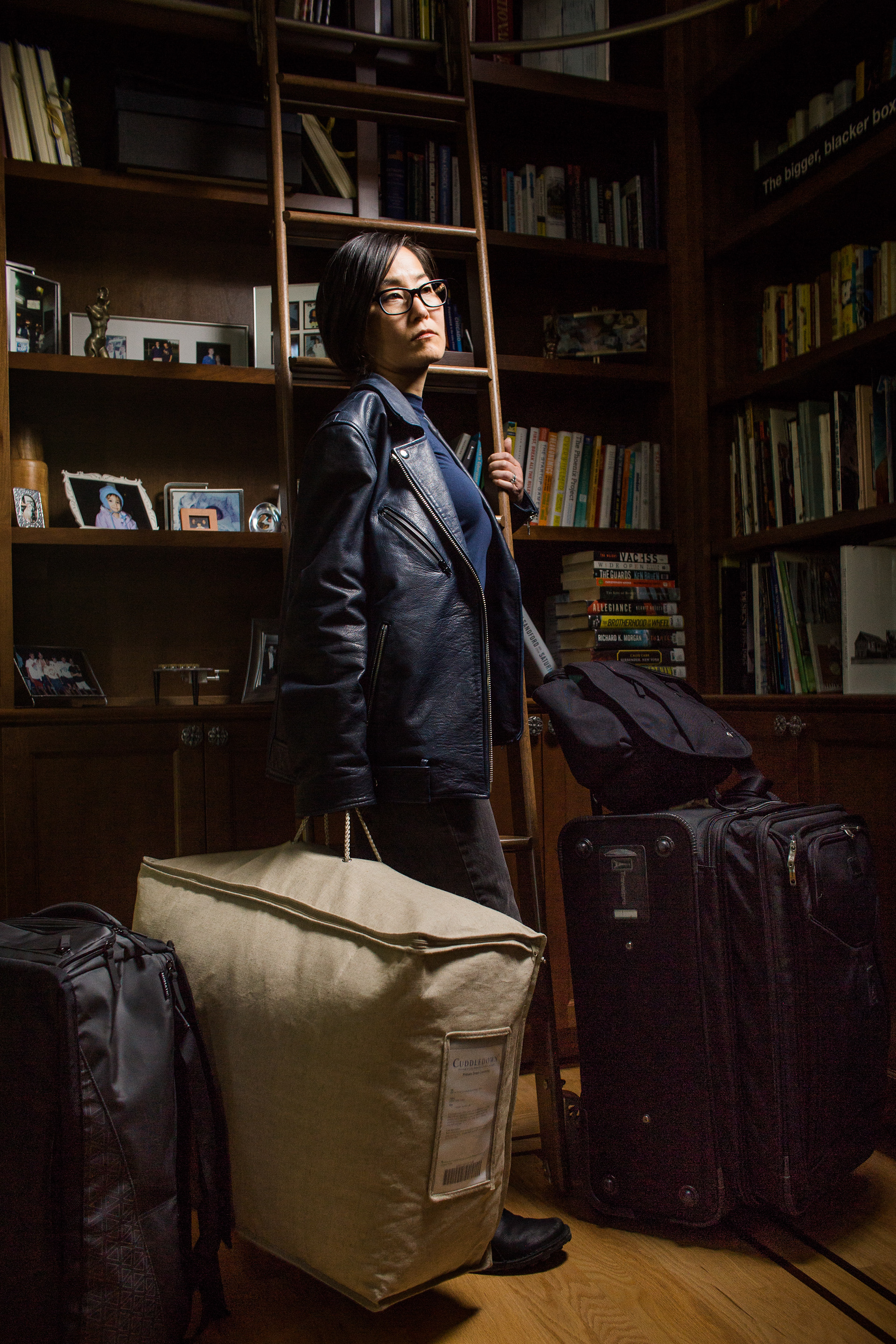
"I think it’s really important to keep documentation alive of the internment because of the Muslim ban that’s going in the U.S. I’ve always been aware of what happened and it happened to our family, and it happened to so many other families, but thinking about it in terms of that was history and there were reparations and there was things signed and apologies, but when the whole proposed Muslim ban came around, I realized, crap this could happen again."
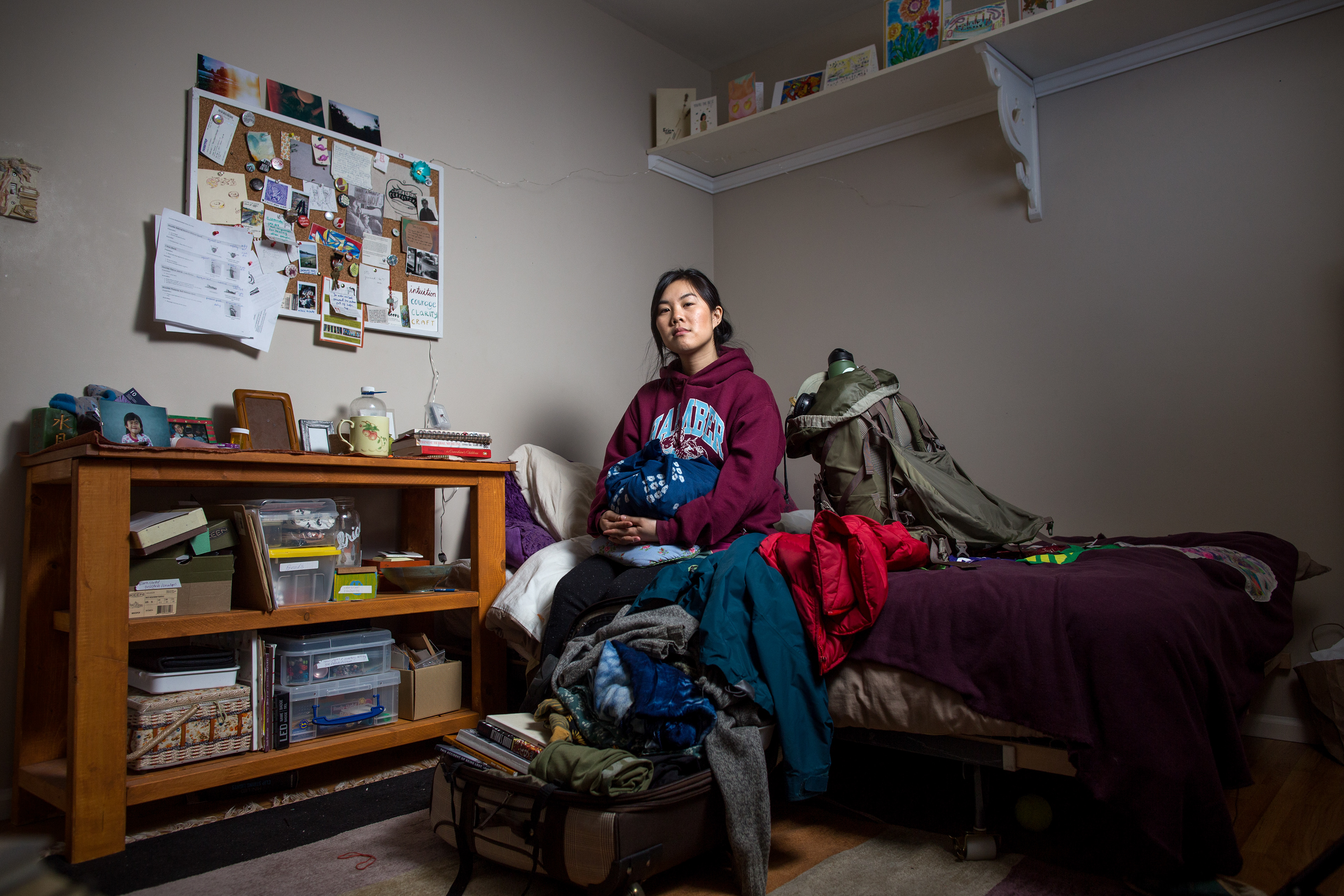
"I think for me today, this history is really important to know because it just makes so many things make sense in my life. For instance, when I was growing up as a kid, people always assumed that because of my name, or because of my ethnicity, that I could speak Japanese or Chinese, Cantonese. But when they were like, ‘Why don't you speak it? You should know your language.’ And people still do this to me today, but back when I was a kid, I didn't understand."
"I thought about what really would make me feel all comfortable, brave, happy or calm."
-Yuuna, 7
